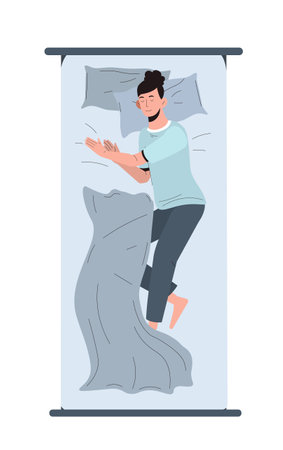Understanding Sleep Challenges for British Parents
For parents across the UK, achieving restful sleep is often more complicated than simply switching off the light at bedtime. Unique hurdles shape the sleep experiences of British families, influenced by a combination of cultural, seasonal, and societal factors. Culturally, longstanding traditions such as the evening “cuppa” or late-night television can delay wind-down routines. The unpredictable British weather, with its long winter nights and short summer evenings, can confuse both children’s and adults’ circadian rhythms, making it difficult to maintain consistent sleep patterns year-round. Moreover, the pressures of modern British life—ranging from early school starts and demanding commutes to the omnipresence of digital devices—intensify feelings of anxiety and disrupt opportunities for restorative rest. Recognising these uniquely British circumstances is a vital first step in understanding how parental sleep is affected, paving the way for practical, evidence-based solutions tailored to the realities faced by families in the UK.
2. Creating a Restful Environment
A peaceful, inviting bedroom is essential for good sleep, especially in the UK where seasons and weather can have a significant impact on comfort. Crafting a restful environment doesn’t require a massive overhaul—simple, evidence-based changes can make all the difference for British parents seeking better rest and less anxiety.
Optimising Bedroom Temperature and Lighting
The ideal bedroom temperature for sleep is around 16–18°C (60–65°F). In Britain’s often unpredictable climate, layering bedding and using thermal curtains can help maintain this optimal range. Blackout blinds are highly effective at blocking out early summer sunrises or urban streetlights, ensuring darkness when you need it most.
| Tip | Benefit |
|---|---|
| Thermal curtains/blackout blinds | Keeps room dark and insulated from draughts or heatwaves |
| Layered bedding (duvet + blankets) | Easily adjust to nightly temperature changes |
| Hot water bottle or heated blanket (in winter) | Offers gentle warmth without overheating |
| Summer-weight duvet (in warmer months) | Prevents overheating for cooler, undisturbed sleep |
Reducing Noise and Enhancing Calm
British homes, especially in busy towns or cities, may contend with outside noise. Consider white noise machines or even classic ‘rain sounds’—a nod to the British weather—for masking disturbances. Soft rugs or carpets also help absorb sound and add a cosy touch underfoot.
Declutter for Mental Calm
A tidy space supports a tidy mind. Evidence suggests that clutter can raise stress levels, so keep bedrooms minimal with just the essentials: a comfortable bed, soft lighting (think warm-toned bedside lamps), and perhaps a few calming personal touches like family photos or favourite books.
Bedding and Sleepwear Choices Matter
Cotton sheets and breathable pyjamas are ideal for regulating temperature and moisture, both important for comfort through damp British nights. Avoid heavy synthetic fabrics which can trap heat and disrupt sleep.
Summary Table: Quick Wins for a Cosy British Bedroom
| Action | Why It Works in the UK |
|---|---|
| Add blackout blinds/curtains | Handles long daylight hours in summer and blocks streetlights year-round |
| Use layered bedding | Adapts easily to changing weather and temperatures typical of the UK climate |
| Select breathable fabrics | Keeps you cool during humid spells and warm during chilly nights |
| Tidy up surfaces regularly | Lowers anxiety by creating visual calmness before bed |
| Add soothing sounds or white noise if needed | Masks urban noises common in British neighbourhoods, promoting uninterrupted rest |
Tailoring your bedroom to suit the unique demands of the British climate and lifestyle can significantly improve your sleep quality. Small adjustments—guided by evidence—help create an environment where both body and mind feel ready to rest.

3. Healthy Sleep Routines for Parents and Families
Establishing a gentle, effective bedtime routine can make all the difference for British parents juggling work, family, and daily stress. In the UK, where evenings are often filled with homework, after-school clubs, and the all-important family dinner, it’s crucial to create routines that are flexible yet consistent. Start by setting a regular bedtime for both adults and children—ideally, allowing enough wind-down time before lights out. This could mean switching off electronics an hour before bed, dimming the lights, and opting for a calming herbal tea instead of caffeine. Consider traditional British activities like reading together as a family or listening to quiet music; these can soothe nerves and promote connection. If you share your home with others, communicate your bedtime needs—perhaps by agreeing on ‘quiet hours’ after 9pm. For parents who struggle to unwind, try incorporating mindfulness exercises or gentle stretches; even five minutes of deep breathing can help ease anxiety. Remember, there’s no one-size-fits-all solution: what matters is finding a rhythm that works for your household. Be kind to yourself during setbacks—British weather or a teething toddler can throw even the best-laid plans! With patience and small adjustments, your family can gradually create healthier sleep habits that fit seamlessly into busy British life.
4. Managing Anxiety and Restless Minds
For many British parents, anxiety and an overactive mind can be significant barriers to restful sleep. The demands of modern UK life—balancing work, family, and social obligations—often leave little room for mental relaxation. Thankfully, evidence-based psychological strategies can help reduce worry and support a more peaceful bedtime routine. Below, we explore practical approaches tailored for busy British mums and dads.
Understanding Parental Anxiety in the UK Context
It’s normal to feel worried about your children, finances, or household responsibilities. However, persistent anxiety can disrupt sleep quality. Recognising common sources of worry is the first step toward managing them effectively.
| Common Worries | Impact on Sleep | UK-Specific Tips |
|---|---|---|
| Work-life balance | Trouble falling asleep due to racing thoughts | Establish clear work boundaries; use your annual leave for rest |
| Children’s wellbeing | Waking up at night to check on children | Share night duties with your partner or trusted family member |
| Financial concerns | Difficulty staying asleep due to stress dreams | Seek free advice from UK organisations like Citizens Advice |
Evidence-Based Strategies to Calm the Mind
The following techniques are grounded in psychological research and proven to help manage anxiety:
- Cognitive Behavioural Therapy (CBT): CBT techniques such as “thought challenging” help identify and reframe anxious thoughts before bedtime. Many NHS trusts offer digital CBT resources for parents.
- Progressive Muscle Relaxation: Systematically tensing and relaxing each muscle group signals your body it’s time to wind down.
- Mindful Breathing: Try the “4-7-8” breathing method: inhale for four seconds, hold for seven, exhale for eight. This technique is easy to remember—even during a midnight wake-up.
- Worry Journals: Keep a notebook by your bed. Jotting down worries before sleep helps you process them and prevents rumination.
- Lifestyle Adjustments: Limiting caffeine after 2pm and reducing screen time in the evening are simple changes with big benefits, especially during darker British winters.
Building a Supportive Bedtime Routine
A consistent routine signals to both your mind and body that it’s time to sleep. Here’s an example tailored for UK parents:
| Time | Activity | Purpose |
|---|---|---|
| 8:30pm | Cup of decaf tea (e.g., chamomile) | Soothe nerves; avoid caffeines effects on sleep cycles |
| 9:00pm | No screens; read a book or listen to gentle music (BBC Sounds offers great options) | Avoid blue light; promote relaxation through calm activities |
| 9:30pm | Meditation or deep-breathing exercises with Headspace or Calm app (both popular in the UK) | Cultivate mindfulness; lower heart rate for easier sleep onset |
| 10:00pm | Bedsheet straightening; dim lights; set bedroom temperature cool (16-18°C) | Create a comfortable environment aligned with NHS recommendations for sleep hygiene in Britain’s climate |
If You Can’t Sleep…
If worries persist after 20 minutes in bed, get up and do something calming in low light—a classic British tip is making a warm milky drink—before returning to bed when drowsy. Remember, consistent practice of these strategies can make a significant difference over time, allowing you to enjoy deeper rest and greet each day with renewed energy.
5. Nutrition and Lifestyle Habits for Better Sleep
Getting a good nights rest often starts with what we put into our bodies and how we shape our daily routines. For British parents, tailoring nutrition and lifestyle habits to support sleep can be a gentle yet powerful step towards improved wellbeing for the whole family.
Wholesome British Foods That Support Sleep
Opting for traditional, nutrient-rich British foods can play a role in promoting restful sleep. Oats, found in comforting porridge or flapjacks, are a slow-release carbohydrate that helps maintain steady blood sugar levels overnight. Dairy products like warm milk or natural yoghurt provide calcium and tryptophan, both known to aid relaxation and sleep onset. Including oily fish such as mackerel or salmon in weekly meals boosts omega-3 intake, which supports melatonin production—the hormone that regulates sleep cycles.
Herbal Remedies Rooted in British Tradition
Many British households have long valued herbal teas as part of their evening ritual. Chamomile tea is widely praised for its calming properties and mild sedative effect. Likewise, valerian root, often found in over-the-counter herbal blends, has been studied for its ability to improve sleep quality. While these remedies are generally considered safe, it’s wise to consult with a healthcare professional before introducing new supplements, especially during pregnancy or breastfeeding.
Lifestyle Tweaks to Encourage Restful Nights
Small adjustments in daily habits can make a noticeable difference to sleep quality. Creating a consistent bedtime routine—such as dimming lights after tea, reading a book, or enjoying a relaxing bath—signals the body that it’s time to wind down. Limiting caffeine after midday is particularly important in the UK, where tea drinking is beloved but may interfere with sleep if consumed late in the day. Finally, seeking exposure to natural daylight during morning walks through local parks helps regulate the body’s circadian rhythms, making it easier to fall asleep at night.
By blending wholesome British foods, time-honoured herbal remedies, and mindful lifestyle tweaks, parents can take evidence-based steps towards better rest and reduced anxiety—nurturing both themselves and their families on the journey to healthier sleep.
6. When to Seek Professional Support
While many British parents find that simple, evidence-based strategies can significantly improve sleep and reduce anxiety, it’s important to recognise when additional support may be needed. Persistent difficulties such as ongoing insomnia, overwhelming worry, or anxiety that interferes with daily life might indicate it’s time to seek professional guidance.
Spotting Persistent Issues
If you notice that your sleep troubles or anxiety have lasted for several weeks without improvement despite making lifestyle changes, or if they are affecting your ability to care for your family, work, or enjoy daily activities, these are clear signals not to ignore. Night after night of poor rest or constant feelings of unease can take a toll on both physical and mental health.
When Self-Help Isn’t Enough
It’s normal for parents to have the odd restless night or stressful week, but chronic issues shouldn’t be brushed aside. Signs like frequent nightmares, panic attacks, or feeling constantly exhausted are valid reasons to reach out for extra help. Trust your instincts—if you feel overwhelmed or things simply aren’t getting better, you’re not alone and there is support available.
Accessing NHS and Local Mental Health Support
The NHS offers a range of services specifically designed for parents and families experiencing sleep or mental health difficulties. You can start by speaking with your GP, who can provide advice and referrals to appropriate services. In England, resources such as Improving Access to Psychological Therapies (IAPT) offer talking therapies for stress, anxiety, and sleep problems. Scotland’s NHS 24 Mental Health Hub and similar services in Wales and Northern Ireland provide confidential advice tailored to local needs.
Many local councils and charities also run support groups and workshops for parents struggling with sleep or emotional wellbeing. The NHS website is an excellent starting point for finding trusted information and nearby support options. Remember: seeking help is a positive step towards better rest and mental health—for yourself and your family.

